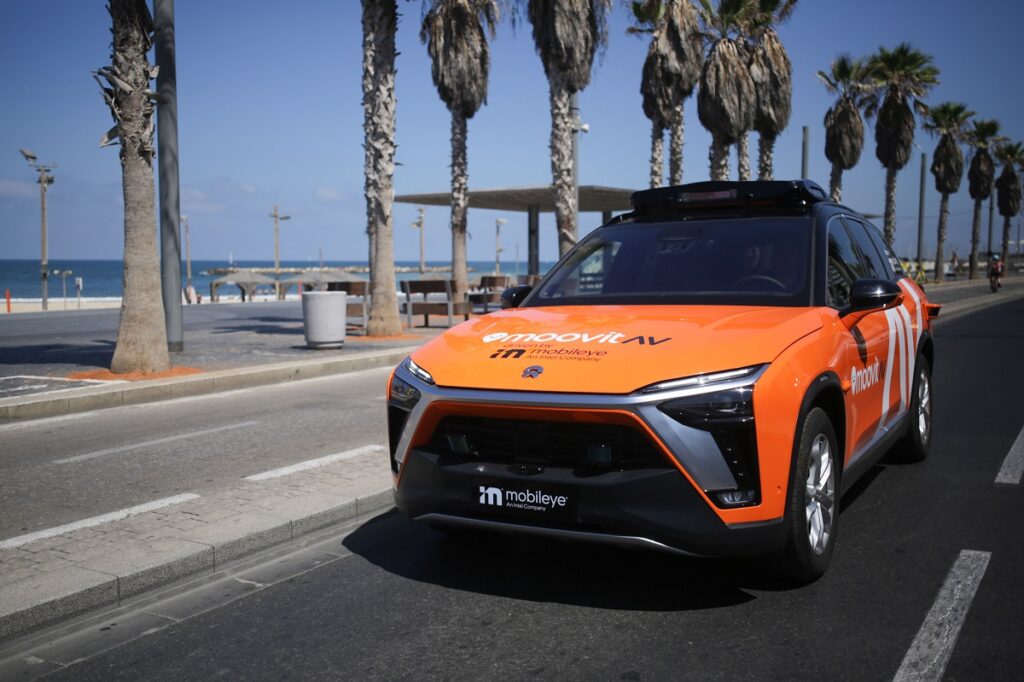US chip producer company Intel Corporation announced on Tuesday its intentions to take Israel’s driver-assistance and autonomous driving solutions firm Mobileye public in the US by mid-2022 via an initial public offering. The IPO could value Mobileye at upwards of USD 50 billion.
The news comes four years after Intel acquired Mobileye for USD 15.3 billion, Israel’s largest deal ever at the time. This week, Intel also announced the acquisition of Israel’s screen duplication platform Screenovate, in a deal estimated at over USD 100 million.
The move “will unlock the value of Mobileye for Intel shareholders by creating a separate publicly-traded company, and will build on Mobileye’s successful track record to serve an expanded market,” Intel announced in a statement.
The semiconductor manufacturer said its acquisition of Mobileye “has been a great success,” as the Israeli firm has “experienced substantial revenue growth, achieved numerous technical innovations, and made significant investments directed to solving scientific and technical problems to prepare the deployment of autonomous driving at scale.”
“Mobileye has achieved record revenue with 2021 gains expected to be more than 40% higher than 2020, highlighting the powerful benefits to both companies of our ongoing partnership,” Intel CEO Pat Gelsinger said.
Intel will remain the majority owner of Mobileye. At the same time, the two companies will continue collaborating on projects as they pursue the growth of computing in the automotive sector, according to Intel. The executive team at Mobileye will remain the same, with Amnon Shashua continuing as the company’s CEO. Moovit AV, an Israeli transit data firm acquired by Intel last year for USD 900 million, and other projects related to Lidar and radar technologies, will be reassigned to Mobileye.
Founded in 1999, Mobileye went public in 2014 on the New York Stock Exchange before it was acquired by Intel in 2017. Mobileye has developed autonomous vehicles test programs across multiple cities worldwide and also manages a robotaxi division, among other projects.
“Mobileye has experienced accelerated growth and opportunities since joining the Intel family, nearly tripling annual chip shipments, revenue, and the number of employees,” said Shashua, founder and CEO of Mobileye.
“Our alignment with Intel continues to provide Mobileye with valuable technical resources and support that has yielded strong revenue, along with free cash flow that allows us to fund our AV development work. Intel and Mobileye’s ongoing technology co-development will continue to deliver great platform solutions for our customers,” Shashua added.
A final decision on the IPO’s conditions and timing are pending, Intel announced. Intel has no intention of spinning off or divesting its majority ownership interest, the company said.
Mobileye’s impact
Mobileye has been one of the top Israeli companies in the mobility industry. At the Smart Mobility Summit in Tel Aviv last month, CEO Shashua kicked off the event by revealing Mobileye’s plans to move forward in the industry. Mobileye is “developing the entire spectrum because autonomous driving could play out in one or two ways—in the form of consumer AVs or robotaxis,” he said.
“We expect more than 100,000 vehicles like that in 2022,” Shashua said. At the 2021 IAA Mobility show in September, Mobileye and Intel announced the beginning of tests in Munich of the company’s self-driving robotaxis, powered by Mobileye Drive Level-4 self-driving platform. Mobileye also announced that the technology will soon be ready for commercial deployment.
The company is also running other self-driving projects in New York, Tokyo, Detroit, and Michigan.
